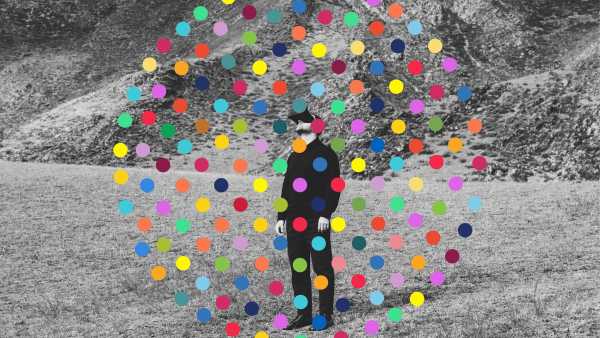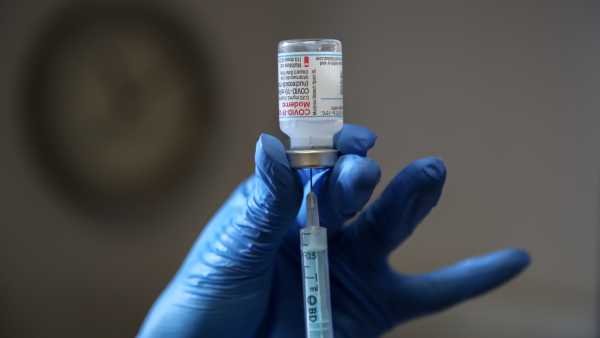
The US federal government has decided to cut funding for mRNA vaccine development by millions of dollars. (Image credit: SOPA Images via Getty Images)
Cells use mRNA to make proteins, and after years of research, scientists have learned to use this molecule to develop vaccines that are effective, safe, and quick to produce. Since the advent of this Nobel Prize-winning technology, several mRNA vaccines have been approved in the U.S., including vaccines against COVID-19 and respiratory syncytial virus (RSV). Vaccines in development may one day protect against seasonal flu, bird flu, HIV, and other diseases.
But now the US federal government is cutting investment in mRNA vaccines, a move that will immediately impact 22 projects worth nearly $500 million, the US Department of Health and Human Services (HHS) announced on Tuesday (August 5).
The statement said some late-stage projects would be allowed to complete, but “no new mRNA-based projects will be initiated.” The department would also cease “all mRNA-based equity investments” coordinated through its partner Global Health Investment Corp., a nonprofit that supports the development of public health technologies through venture capital.
You may like
-
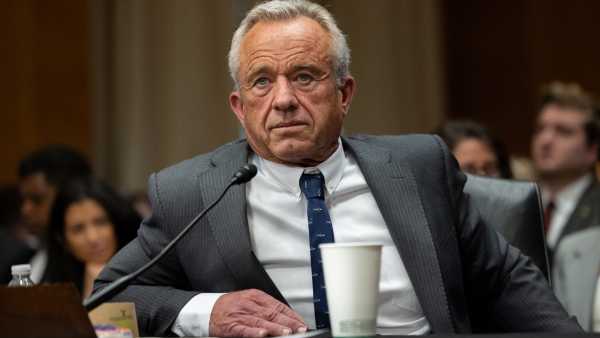
Dissecting (many) false claims by RFK Jr. about COVID vaccines
-
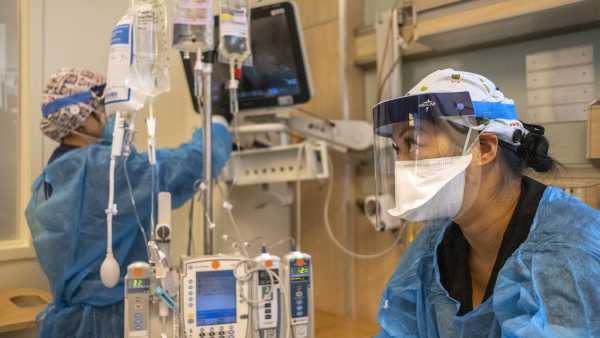
“We have effectively destroyed our entire capacity to respond to a pandemic,” says leading epidemiologist Michael Osterholm.
-
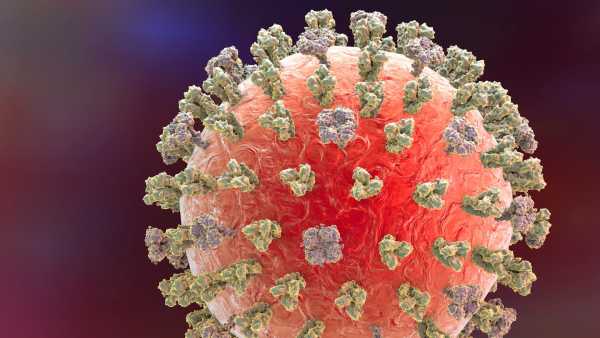
Gain-of-function research is not the preserve of mad scientists. It is fundamental to biology.
Robert F. Kennedy Jr., secretary of the U.S. Department of Health and Human Services and founder of the anti-vaccine organization Children’s Health Defense, said in a statement that mRNA vaccines “do not provide effective protection against upper respiratory infections” and said the Department of Health and Human Services would shift funding to “safer and more widely available vaccine platforms.” Those alternatives were later identified as whole-virus vaccines and unspecified “new” technologies.
The mRNA vaccine reversal would not affect “other applications of mRNA technology,” according to the statement. But “I can tell you the industry doesn’t trust it,” said Jeff Koller, the Bloomberg Distinguished Professor of RNA Biology and Therapeutics at Johns Hopkins University, who has studied mRNA for more than 30 years. “Even though it was limited to infectious diseases, it was a direct hit to the entire industry.”
mRNA is useful for more than just fighting infectious diseases. It could potentially be used in cancer therapy, as a vehicle for delivering gene-altering drugs, to combat autoimmune diseases such as multiple sclerosis, or to treat the dangerous pregnancy disorder preeclampsia.
Live Science spoke with Koller about the recent funding cuts and their expected impact on the mRNA field and American health.
Nicoletta Lanez: Can you talk about how HHS's position on mRNA vaccines has evolved prior to Tuesday's cuts?
Jeff Koller: Even before Robert F. Kennedy was nominated to be Secretary of Health and Human Services, it was clear that he was, above all, a skeptic of vaccines and a strong critic of mRNA vaccines. In statements prior to his nomination, he said, “mRNA vaccines were among the most dangerous drugs ever introduced.”
You may like
-
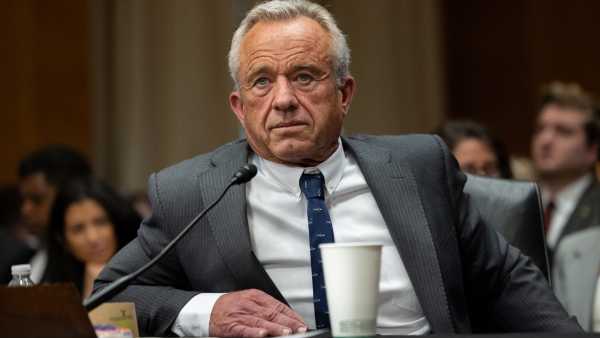
Dissecting (many) false claims by RFK Jr. about COVID vaccines
-
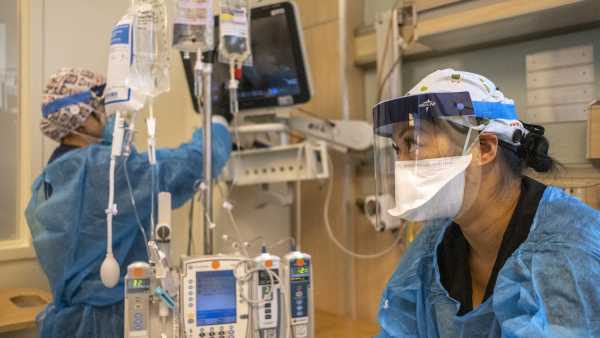
“We have effectively destroyed our entire capacity to respond to a pandemic,” says leading epidemiologist Michael Osterholm.
-
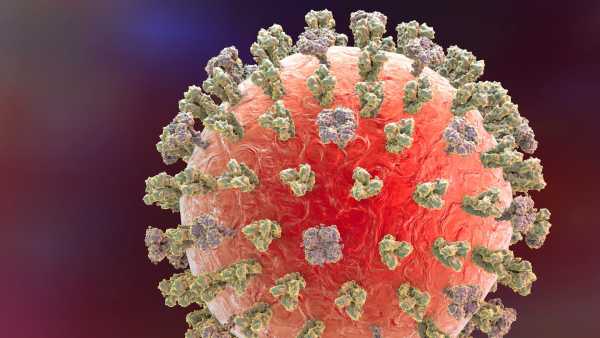
Gain-of-function research is not the preserve of mad scientists. It is fundamental to biology.
[After his appointment] one of his first acts was to disband the ACIP (Advisory Committee on Immunization Practices) committee that oversees vaccination procedures in the United States and appoint new members to that committee. Among them was someone who was skeptical of mRNA: Robert Malone, who said on television, and Joe Rogan, that mRNA was dangerous.
Additionally, around March of this year, an internal memo was sent to employees at the National Institutes of Health (NIH) asking them to disclose information about whether they were working on mRNA vaccines, as well as about their colleagues. This information was made public and published in journals such as Science, warning of potential prosecution of individuals associated with such research.
So we're already starting to see anti-mRNA sentiment rising at HHS, and then the cancellation of the Moderna contract for bird flu, probably about six weeks ago, was probably the first direct federal action to cancel the mRNA program. And two days ago, funding was canceled for 22 mRNA projects that were studying different vaccines.
NL: Do you know the details of these projects?
DK: We know of some clinical trials that have already been going on [and affected], and among them were trials of influenza (which is, of course, the largest), as well as respiratory syncytial virus, or RSV; cytomegalovirus, which is often called CMV; Zika virus; Epstein-Barr virus; and hepatitis B.
NL: The US Department of Health and Human Services (HHS) statement made a distinction between mRNA vaccines and “other uses” of mRNA. Do you think those projects will be unaffected?
DK: Well, I can tell you that the industry doesn’t trust this. I know this because I’m a founding member of the mRNA Drugs Alliance. It’s an organization of more than 75 members, many of whom are from biotech: small biotech companies, large biopharma companies, and also large academic medical centers, including Johns Hopkins University and the University of Pennsylvania, and the Mayo Clinic. We did a survey early in the Trump administration to learn about some of these policy changes that the Department of Health and Human Services was preparing. The overwhelming majority of our members said they thought the United States was becoming an unfriendly place for mRNA technologies.
Even though the cancellation was specific to infectious diseases, it was a real blow to the entire industry. It sent shockwaves through the industry, forcing everyone to ask: Is it worth continuing to invest in these programs in the United States?
The arguments made by [R.F.K. Jr.] were vague and not based on principles accepted by the scientific community. Moreover, most of his claims are false. Given that this decision was clearly made on the basis of unscientific beliefs, the industry will be scratching its head and thinking, “Well, maybe we should look to other countries to develop our products.”
Failure to further investigate the use of technology that has already proven its effectiveness is completely reckless and puts America and Americans at risk.
Jeff Koller, Johns Hopkins University
NL: One example I was thinking of is “cancer vaccines,” which are more like immunotherapies. Do you think HHS would make an exception for those?
DK: We don't know. And we've been very deliberate about moving away from the term “cancer vaccine.” We've started calling them “neoantigen cancer therapies.” It's alarming to think that you're changing the language because you're worried about how the administration is going to perceive your actions.
Many of these technologies being developed to treat cancer are still in the early stages of research and development. They haven’t even entered the biotech space yet; many of them are still in academia. If you’re working in an academic lab, are you really going to continue doing that if you can’t get funding? I personally know researchers running clinical trials of mRNA approaches to cancer who are afraid — they’re actually afraid to talk to journalists like you. They’re afraid to even mention that they have mRNA drugs because their patients will suffer if the funding stops.
NL: Another example I looked at is gene editing, and in particular CRISPR-based treatments. How might that impact?
DK: When CRISPR was discovered, gene editing promised huge potential for treating rare genetic diseases. But the limitation of gene editing was that if you put in a gene editor, you had to be able to stop it. You had to fix the mutation, and then stop the machine from doing too much. If it did, it would keep editing and editing and editing the genome, and then you had a problem.
Gene editing in humans is possible because of mRNA. In the case of baby K.J. [the first recipient of personalized CRISPR therapy], the CRISPR technology was implemented as mRNA. That’s a critical feature that’s needed to make it happen. The beauty of the human body is that it makes mRNA and then it sends it out. So by implementing gene editing technology as mRNA, we were able to have an effect for a very short period of time and then let the body go about its business and get rid of it. That was perfect for this little guy.
By undermining mRNA-based work, we are potentially limiting the potential for this truly personalized medical approach to gene editing that could save the lives of millions of people every year.
NL: How do you think this asset sale could impact pandemic preparedness in the US?
DK: I actually think that these decisions were completely reckless in this regard and caused significant harm to America in terms of our national defense.
Under the leadership of Donald Trump, Operation Warp Speed, we were able to identify a pathogen, sequence it, create a potential vaccine, develop it in nine months, and deliver it to the American people within three months. This is unprecedented in human history. The reason we were able to do this is because of the power of the mRNA platform: it’s very easy to develop, easy to manufacture at scale, and then easy to deploy for widespread distribution to the population.
Traditional vaccines, before mRNA vaccines, typically take three to five years to develop. And you don't even know if it's going to be effective. In a pandemic, you really need a technology that can be deployed quickly. Not continuing to explore the use of a technology that's already proven to be effective is completely reckless and puts America and Americans at risk.
The truth is that other countries, especially China, are recognizing the power of mRNA vaccines and mRNA drugs and are doubling down on their investments. Frankly, if a pandemic breaks out, we will have to beg China for vaccines.
RELATED STORIES
— New mRNA vaccine against deadly brain cancer induces a strong immune response.
— CRISPR “will allow us to cure genetic diseases that were previously considered incurable,” says renowned biochemist Virginijus Šikšnys.
— New mRNA therapy promises to be effective in treating an “extremely rare” inherited disease.
NL: Do you think this could also lead to “vaccine tourism,” where Americans travel abroad to get vaccinated?
DK: If there were a pandemic, like bird flu, and we weren't prepared for it, then of course, if Canada had a vaccine, people would start migrating north.
And you have to think about it even more broadly. The study at Sloan Kettering Cancer Center showed such high efficacy in pancreatic cancer. If these studies stopped and they continued in Europe or China, and you were diagnosed with pancreatic cancer, you would go there. Right? You can think about other types of tourism besides vaccination tourism, like medical tourism.
NL: From an industry perspective, what might these cuts mean for mRNA developers?
DK: First of all, there are other countries that are trying to attract American companies to their country by offering them various incentives. And they are trying to do the same with scientists by giving them easy paths to citizenship, grants and funding. In addition to moving their brick-and-mortar facilities abroad, these American companies will start developing drugs that are specifically for other countries. There are viruses that are more common in South America; the market in the US just doesn’t make sense, but we could easily sell these drugs to, for example, Brazil.
I think that's what's going to happen in the short term. These companies will start making drugs and selling them in other countries. But then, in the long term, they'll switch to traditional medical practices.
NL: Do you expect any other consequences of these cuts?
DK: I think it will certainly impact America's leadership in biomedical discovery. We will lose a whole generation of scientists because of this kind of action.
Let's not kid ourselves: mRNA is one of the three most important molecules in the body, along with DNA and protein. It acts as a go-between. When the federal government says that mRNA-based medicine and research are undesirable, you're basically saying that an entire branch of science is no longer welcome in the United States.
So if you're a young person who's thinking about going to graduate school and becoming a scientist and trying to use your talents to improve human health, you probably can't do that. At least not in the United States. So I think the United States is going to fall far behind in terms of leadership in biotechnology.
Over the next five to ten years, we will see a significant brain drain as other countries build up their infrastructure, new scientists are not trained in the United States, and existing scientists flee.
NL: What do you think the public needs to understand about funding cuts and mRNA?
DK: I think most Americans don't realize that mRNA is a natural substance, a natural part of the body. Every cell in the body contains mRNA — thousands of copies of mRNA.
We're not doing anything dangerous or reckless with mRNA drugs. We, as medical professionals, are actually using a natural system that exists in your body, and using your body to help itself. It's truly amazing that we can do that. All we're doing is using this wonderful system that already exists.
Disclaimer
This article is for informational purposes only and does not provide medical advice.
TOPICS vaccines pandemic

Nicoletta Lanese. Social Links Navigation. Editor of the Health Channel.
Nicoletta Lanez is the Health Editor at Live Science and previously served as the site’s news editor and staff writer. She holds a certificate in science communication from the University of California, Santa Cruz, and degrees in neuroscience and dance from the University of Florida. Her work has appeared in The Scientist, Science News, Mercury News, Mongabay, and Stanford Medicine Magazine, among other publications. Based in New York City, she is also an avid dancer and performs in productions by local choreographers.
You must verify your public display name before commenting.
Please log out and log back in. You will then be prompted to enter a display name.
Exit Read more
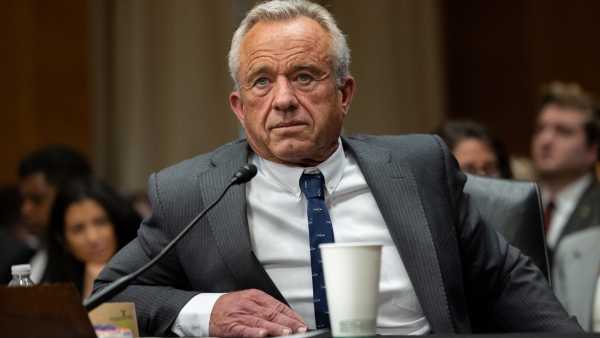
Dissecting (many) false claims by RFK Jr. about COVID vaccines
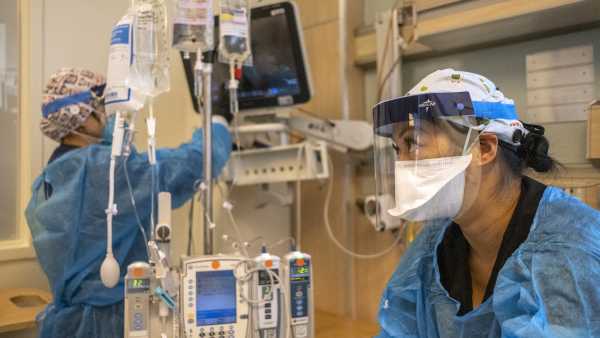
“We have effectively destroyed our entire capacity to respond to a pandemic,” says leading epidemiologist Michael Osterholm.
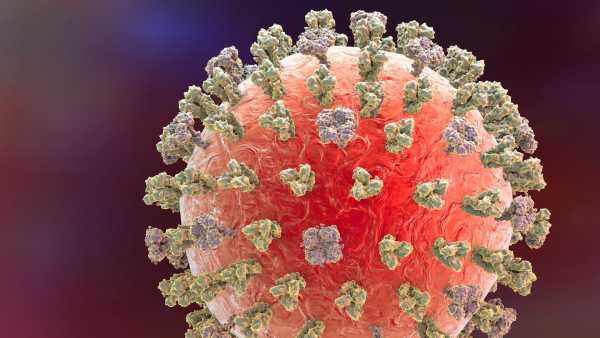
Gain-of-function research is not the preserve of mad scientists. It is fundamental to biology.

Robert Kennedy Jr. Wants to Reform the Nation's 'Vaccine Court.' Here's What's Stopping Him

COVID-19 vaccines for children in limbo due to conflicting federal recommendations
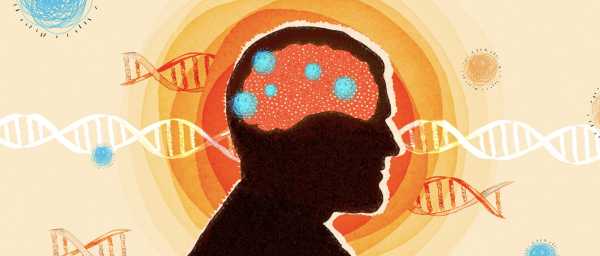
Remnants of ancient viruses make up 40% of our genome. They can cause brain degeneration.
Latest news on medicine and drugs

An innovative drug for the treatment of cystic fibrosis that extends life by decades has earned its developers an “American Nobel Prize” of $250,000.

Study Finds Just One Dose of LSD Can Relieve Anxiety for Months

Robert Kennedy Jr. Wants to Reform the Nation's 'Vaccine Court.' Here's What's Stopping Him
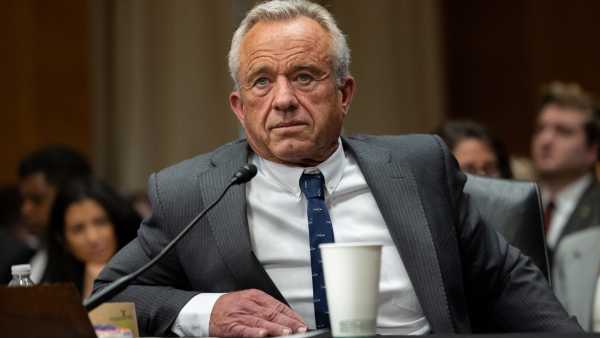
Dissecting (many) false claims by RFK Jr. about COVID vaccines

Does cannabis increase the risk of cancer?
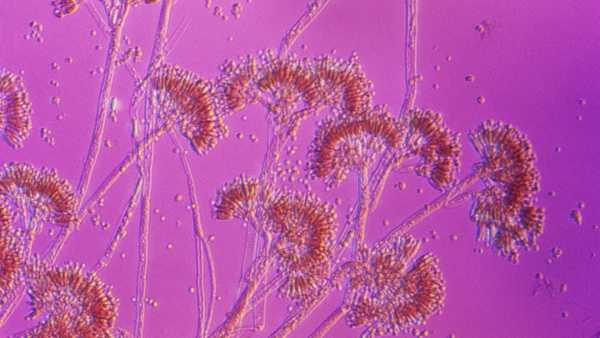
You may not be allergic to penicillin. Here's how to find out if you are.
Latest in interview
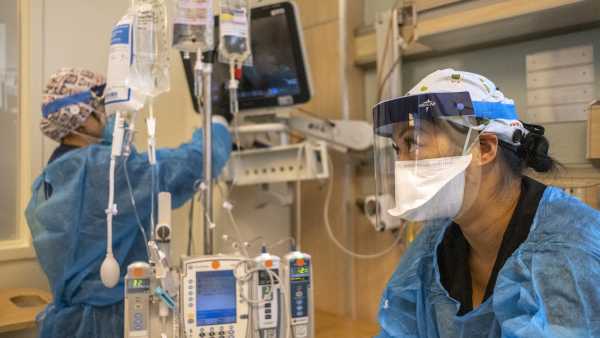
“We have effectively destroyed our entire capacity to respond to a pandemic,” says leading epidemiologist Michael Osterholm.

AI cannot solve these puzzles that take humans seconds to solve.

We know that humans originated in Africa, but archaeology is only just beginning to uncover the secrets of the continent's early civilizations.
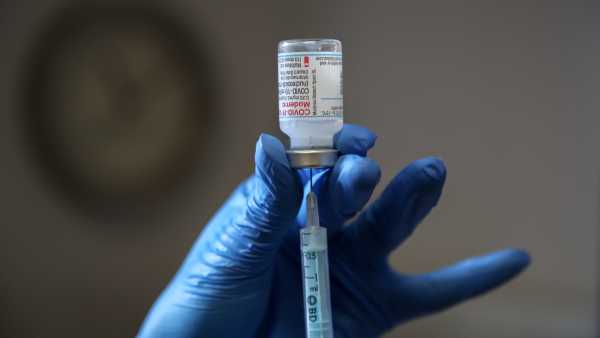
'These decisions were completely reckless': Cutting funding for mRNA vaccines will make America more vulnerable to pandemics

“Imagining How I'd React If I Seeed a Real Giant Dinosaur”: What the Scientific Advisor of Jurassic World: Resurgence Thinks About the Film

'Vaccine Rejection Has Been Around as Long as Vaccines': Science Historian Thomas Levenson on the History of Germ Theory and Its Deniers
LATEST ARTICLES

1The best star projector we tested is on sale for 38% less on Amazon, making it one of the lowest prices ever.
Live Science is part of Future US Inc., an international media group and leading digital publisher. Visit our corporate website.
- About Us
- Contact Future experts
- Terms and Conditions
- Privacy Policy
- Cookie Policy
- Accessibility Statement
- Advertise with us
- Web Notifications
- Career
- Editorial Standards
- How to present history to us
© Future US, Inc. Full 7th Floor, 130 West 42nd Street, New York, NY 10036.
var dfp_config = { “site_platform”: “vanilla”, “keywords”: “type_interview,serversidehawk,videoarticle,van-enable-adviser-
Sourse: www.livescience.com




